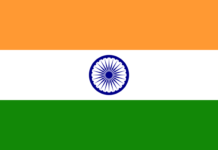By Prashant Sood
New Delhi–It was a year when Rahul Gandhi finally stepped into the Congress President’s shoes and ran a doughty campaign in Gujarat which unnerved the ruling BJP. It was also a year when Congress won its first major victory in a state — Punjab — and also faced several disappointments.
The coming year poses bigger challenges for Gandhi as he builds the tempo for the 2019 Lok Sabha elections by seeking to wrest key states from the Bharatiya Janata Party (BJP) and retain those ruled by his party.
The Congress is now in power in one Union territory and only four states, and two of these — Karnataka and Meghalaya — will go to the polls in the coming year.
Gandhi, who had been perceived as a reluctant heir to the Nehru-Gandhi dynasty, made quite a turnaround earlier this year as he launched scathing attacks on Prime Minister Narendra Modi, posed sharp questions, debunked the government’s economic policies and sought to portray the BJP as a party which has failed to deliver on its promises.
From the time of his visit to the US in September where he also addressed students, Gandhi has kept up the stridency of his attacks on Modi. He finally took up the role of Congress President from his mother Sonia Gandhi in December, long after many of his colleagues in the party had suggested he should.

Rahul Gandhi’s challenges are both electoral and organisational. He has to bring the Congress back to its winning ways by speeding up decision-making, infusing energy and accountability, curbing factionalism, promoting strong leadership in states and strengthening the organisation at the booth level.
He has to craft a strategy that helps the Congress get overwhelming support of the vast middle-class and the youth who are seen to back Modi. With caste still a factor in populous states such as Uttar Pradesh and Bihar, Gandhi has to bring back groups that have traditionally been with the Congress.
It is a tall order and he will have to capitalise on any mistakes the BJP makes.
The Congress has lost a series of state elections since its debacle in the 2014 Lok Sabha polls. The party could win only Punjab among the seven states that went to polls this year and lost governments in Uttarakhand and Himachal Pradesh. It could not form governments in Goa and Manipur despite emerging as the single-largest party.
The Congress tally in Gujarat assembly polls — the highest in the last 27 years — has given the party a lot of hope, both in pyschological and strategic terms. Gujarat is the home turf of Modi and BJP chief Amit Shah and the Congress lost out on the majority mark by about a dozen seats even though it has been out of power in the state for over two decades.
Gandhi crafted a broad social alliance involving three leaders from distinct castes, mounted vociferous attacks on the Modi government’s demonetisation move and its “flawed implementation” of the Goods and Services Tax (GST) regime. The BJP had to offer concessions on GST and Modi had to launch a high-intensity campaign to save the BJP blushes.
But Gandhi’s joining hands with Samajwadi Party in Uttar Pradesh assembly polls earlier this year to prevent the division of anti-BJP votes came a cropper. The Congress tally did not touch even double digits in the home state of Sonia Gandhi and Rahul Gandhi.
The party lost seats in Rahul Gandhi’s Amethi parliamentary constituency as also in Sonia Gandhi’s Rae Bareli constituency. The BJP, which swept Uttar Pradesh — the most populous state in the country which sends 80 MPs to the Lok Sabha — later consolidated its position by its good show in the municipal elections in the state.
Eight states go to the polls next year and most of the big ones — Karantaka, Madhya Pradesh, Rajasthan, and Chattisgarh — are expected to witness a largely direct contest between the BJP and the Congress.
Since its worst-ever performance in 2014, the Congress has not been able to defeat the BJP in any state election where the two parties have faced each other.
The Congress’ showing in Gujarat also came on the back of a quota stir by the Patidar community and a campaign for empowerment of Dalits. While Congress backed the quota demand, this can backfire due to the competing interests of various caste groups in different parts of the country.
The electoral battles next year will test Gandhi’s mettle as these will be fought directly under his charge as Congress president. These battles will also decide if he will emerge as a viable challenger Modi in 2019, besides impacting the opposition’s strategy.
Bringing together disparate opposition groups with competing interests and support bases will be another challenge for Rahul Gandhi in the run-up to the Lok Sabha polls. Sonia Gandhi had deftly built a coalition ahead of 2004 Lok Sabha polls which paved the way for the BJP-led National Democratic Alliance (NDA) losing the elections.
Rahul Gandhi has sought to portray the BJP as a divisive party that thrives on controversies and has repeatedly questioned the Modi government’s performance on jobs. He has sought to portray Modi as a friend of the “rich” and has sought to tap into the “growing economic inequality” and problems faced by farmers.
As a move towards ramping up the working of the party, he has decided to hold meetings of the Congress Working Committee, the party’s highest decision-making body, every two months. Gandhi has said his plan is to transform the Congress from bottom upwards and he will like to bring in many new, young, exciting and dynamic faces.
Gandhi has a formidable opponent in Modi and his success will depend on his ability to establish himself as a dynamic, caring and energetic leader with a forward-looking vision for the country. (IANS)














